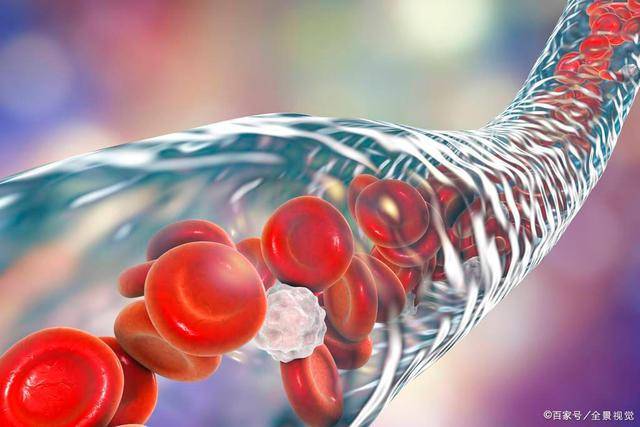As the saying goes: people and arteries have the same lifespan.
If blood vessels are blocked, it could be a matter of minutes before a life is at risk.
For instance, when the aorta is blocked, it can lead to conditions like stroke and sudden heart attacks.
Blockages in peripheral blood vessels can trigger tissue necrosis and even pose a threat to life, so protecting the blood vessels is imperative.
Four types of foods can act as “accelerators” for blood clots, and if you love consuming them, it’s no wonder your blood vessels are getting clogged.
Strong flavor, excessive salt intake
Foods like spicy hot pot and barbecue, although delicious, tend to be high in salt content, gradually intensifying one’s taste for salt.
Studies abroad have shown that after consuming salty foods, the ability of blood vessels to dilate is affected within just 30 minutes, potentially causing heart damage.
When salt intake exceeds the limit, it rapidly harms the blood vessels. Therefore, it’s recommended that adults limit daily salt intake to no more than 6 grams, and individuals with conditions like hypertension should not exceed 4 grams.
Excessive consumption of meat and fish, limited intake of vegetables
Modern diets are predominantly rich in meat and poor in vegetables, which can elevate cholesterol and triglycerides levels in the body, increase cholesterol lipoprotein content in blood vessels, and raise the risk of blockages.
Hence, foods like fatty meat can accelerate blood vessel blockages. To prevent burdening your blood vessels, ensure a balanced diet with less oil, salt, and sugar.
Lack of sleep, irregular routines
Prolonged periods of staying up late can disrupt the body’s internal clock, leading to excessive secretion of adrenaline and norepinephrine, causing blood vessels to constrict, slow down blood flow, and increase blood volume.
Studies have indicated that individuals who stay up late are at twice the risk of developing heart diseases compared to those with regular sleep patterns. It’s essential to enter into deep sleep before 11 PM each night to reduce the burden on blood vessels.
Furthermore, irregular routines can increase the risk of various health issues. It’s advisable to maintain a consistent sleep schedule, enhance immunity, and prevent diseases.
Alcohol consumption, smoking
Smoking and drinking are common habits for many, but both habits inflict severe harm on the body. Even light smoking can lead to evident atherosclerosis after 10 years.
Recovery from smoking-related damages varies depending on individual health conditions, and significant improvements may take up to 10 years post-smoking cessation. Excessive alcohol consumption burdens the liver, reduces liver function, disrupts fat and sugar metabolism, increases fat deposits in the blood vessels, and promotes clot formation. Quitting smoking and drinking is crucial for a healthier life.
Natural “thrombolytic agents,” contrary to popular belief, don’t include black fungus but rather certain foods that dissolve blood clots, improve blood vessel health, and maintain youthfulness.
Eggplant
Eggplant, a common vegetable, possesses significant health benefits, particularly in safeguarding blood vessels. It contains ample vitamin P that enhances capillary elasticity, reduces capillary fragility and permeability, and maintains capillary elasticity for protective purposes.
The “saponins” in eggplant reduce cholesterol levels, prevent clot formation, and consuming eggplant along with its skin is most beneficial.
Corn
Corn serves not only as a staple but also as a vegetable with potent health benefits, including enhancing blood vessel elasticity and preventing atherosclerosis.
Rich in unsaturated fatty acids, corn prevents atherosclerosis and maintains vascular patency. Its high calcium content not only aids in blood pressure regulation but also lowers serum cholesterol levels.
Corn is highly recommended for individuals with coronary heart disease, atherosclerosis, and hyperlipidemia to help prevent lipid deposits on vessel walls and clot formation.
Maintaining blood vessel health involves focusing on three key aspects:
Early bedtime. Consistent early sleep patterns promote healthy blood vessels. Aim to enter deep sleep before 11 PM, ensure 7-8 hours of rest, which stabilizes blood pressure and preserves vessel elasticity.
Regular exercise. Engage in half an hour of physical activity daily such as walking, swimming, or playing sports to enhance blood circulation, improve lung function, maintain smooth blood flow, and boost vessel elasticity.
Regular check-ups. If you experience vascular conditions, make it a habit to undergo timely medical check-ups, ideally a comprehensive examination every six months. Individuals with issues like hypertension, hyperlipidemia, or hyperglycemia should seek assessment every three months to monitor their condition’s progression.


